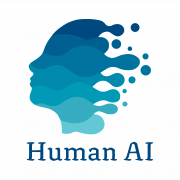Without well-being there is no real victory
There are many elite athletes who have shared and made visible their own situations and mental health problems in the face of the demands of a sport that puts 100% of their physical and emotional capabilities.
“I never would have thought I would get mentally ill from a sport I loved so much.”
Te Kura Ngata-Aerengamate, New Zealand rugby player.
“For me at the time, the expectations were much higher than the level I was at at the time. The pressure got the better of me, the anxiety overcame me.”
Paula Badosa, tennis player number 8 in the world ranking.
“I continue to go to therapy because I need to fix myself. Eventually, life teaches you that depression and mental illness can affect anyone.”
Andrés Iniesta , Spanish soccer player, World Champion 2010.
“I could put on a happy face in public, but behind the doors, I was having crises that no one knew about.”
Michel Phelps, Olympic swimmer.
Sport as a daily exercise practice is undoubtedly one of the best allies of mental health, however, taken to extreme levels – and without adequate socio-emotional development -, it can become the biggest rival of mental health.
When you end up straining the muscle without training it and training it breaks down, so does the psyche.
Essential training: mental health
The importance of mental health is one of the most current issues of our generation. And it is no less so in a context in which we live in a continuous level of high demand; where stress, pressure, concentration and expectations are the daily bread.
Athletes internalize from the first training session that they must work hard to arrive, to win, to reach the goal, the record. At the same time, it is important to differentiate virtues such as perseverance, hard work, resilience and self-improvement from other types of utopian demands, toxic thoughts and vitiated attitudes that endanger mental and emotional health, and therefore sporting performance itself.
Sports mental health is not simply having high emotional resilience in the face of stressful situations. It is a holistic approach: tools, inner mechanisms and mental, social and emotional habits capable of balancing the different dimensions of the person; allowing to perform better in competition and above all generating an integral well-being.
The most widespread problems
“We hear a lot about post-Olympic depression, but I haven’t seen any research on mental health before the Olympics,” comments Zoe Poucher in her research exploring the prevalence of symptoms of common mental disorders among elite Canadian athletes in the wake of Olympic gymnast Simone Biles’ mental health retirement.
According to this study conducted at the University of Toronto, depression, anxiety and eating disorder are the most widespread problems in athletes, with depression being the most significant.
With situations such as depression, it becomes essential to give the necessary importance and space to these mental health issues in the sports career, from training, competitions to the athlete’s retirement.
Facing these types of realities does not by itself enable one to know how to manage them.
Young people cared for, successful athlete
Why not work on and develop prevention and training programs? Do we have to reach the limits of performance to become aware that emotional management and mental health are essential? Why not work with the youth, the children who are just starting to train, the sports clubs?
Working and taking care of the psychic and emotional dimension from the beginning: self-knowledge, mental strategies, concentration mechanisms, stress management, self-esteem, empathy, mutual support, etc. will ensure that in the long term young athletes will be able to reach the highest level in a healthy way, enjoying themselves and without breaking down psychologically.
No sporting success can compensate for the enormous sacrifice of one’s own well-being and personal happiness.







